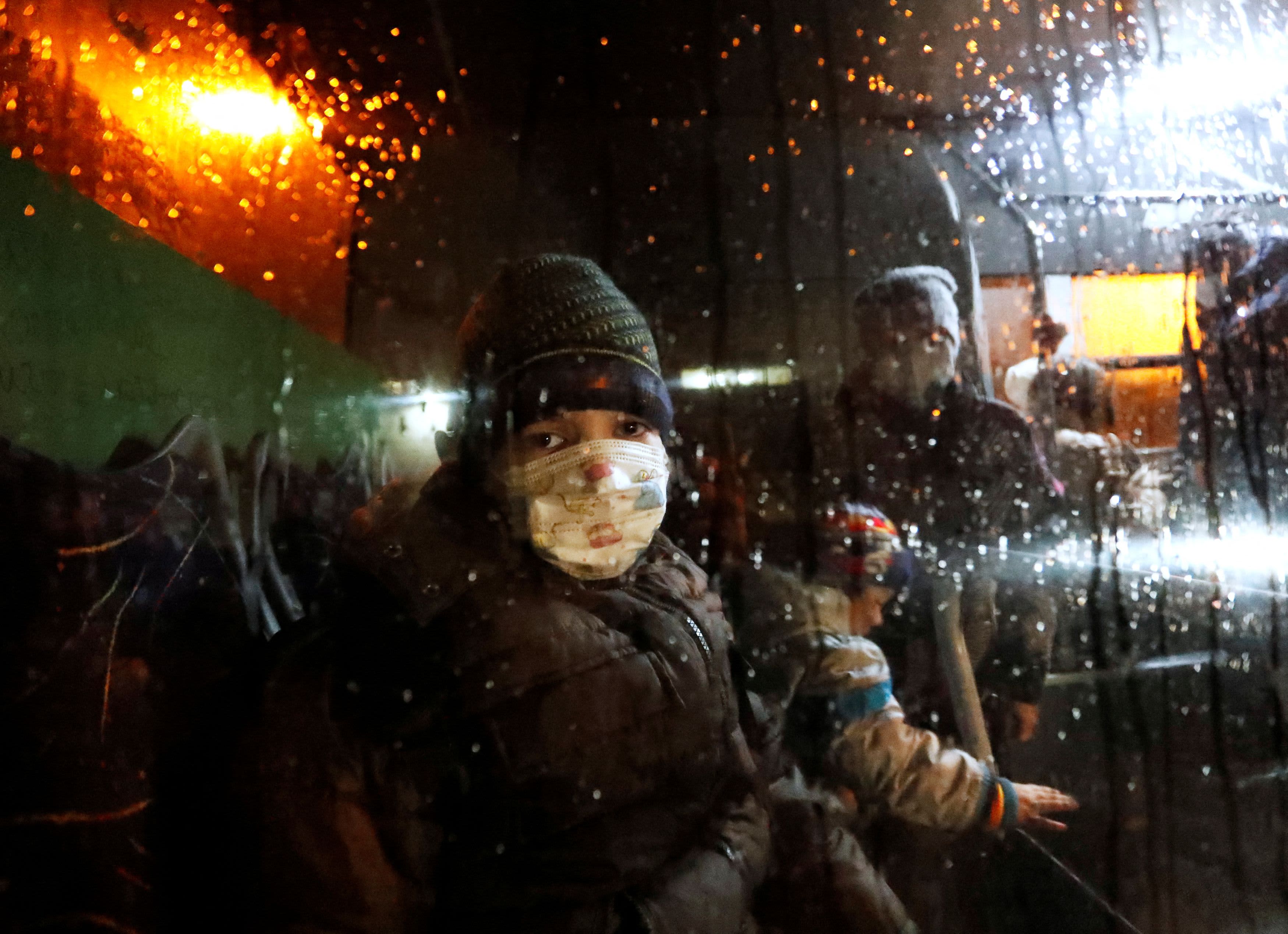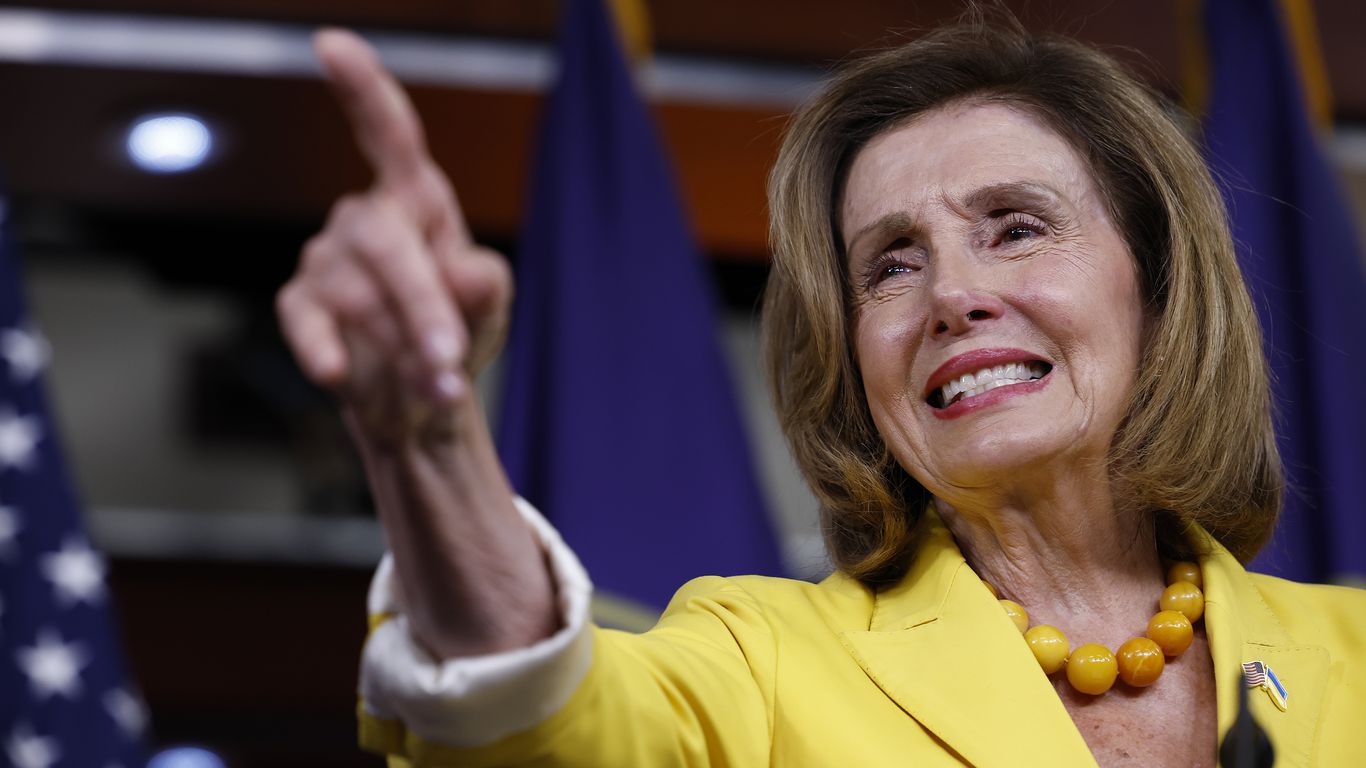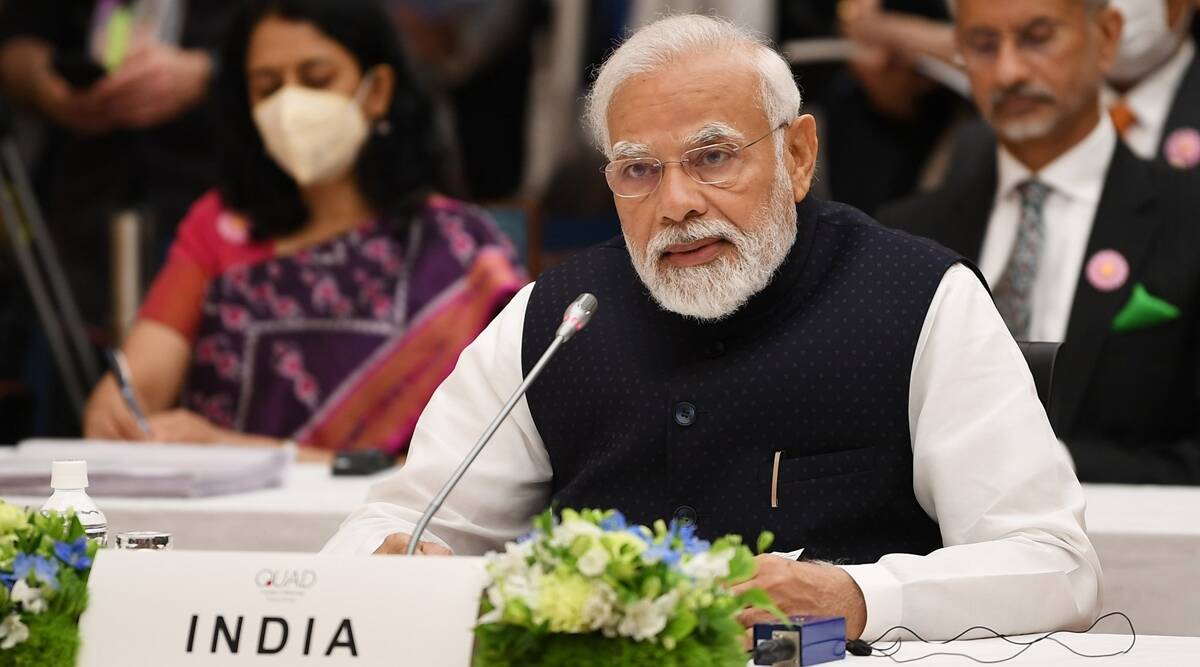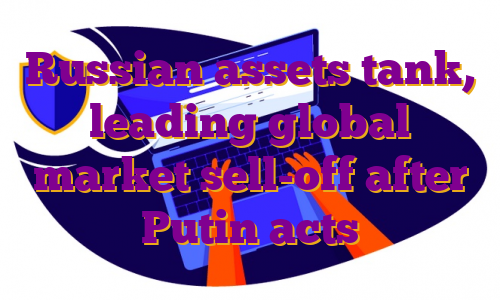A child is seen inside a bus arranged to evacuate local residents, in the rebel-controlled city of Donetsk, Ukraine February 18, 2022.Alexander Ermochenko | ReutersLONDON — Russian assets led a global pullback on Tuesday after Russian President Vladimir Putin ordered troops into two breakaway regions of eastern Ukraine.The Russian ruble slid below 80 to the dollar following Putin’s announcement, its lowest for two years, before recovering to around the 79 mark. The Ukranian hryvnia dropped further however, shedding 2.1% against the ruble. Russia’s MOEX stock index plunged 6% by late morning in Moscow to its lowest point since mid-2020, and was down 4.1% by early afternoon. The RTS Index was last seen down around 6.5%.European markets slid as much as 1.8% at the open on Tuesday morning but retraced the losses about three hours into trading to return to the flatline. Shares in Asia-Pacific closed lower on Tuesday and U.S. stock futures pointed to slight losses on Wall Street later in the day, also paring earlier losses amid volatile premarket trade.Meanwhile oil prices surged, with U.S. crude jumping 4.2% to $95 per barrel and international benchmark Brent crude climbing 2.9% to around $98 per barrel.Digital currencies also took a beating, with bitcoin sinking as low as $36,370 in early morning trade, its lowest level in more than two weeks, before recovering to $37,630 by late morning in Europe.Sanctions expectedIt comes after Putin announced Monday evening that he would recognize the independence of Donetsk and Luhansk and signed a decree calling for forces to enter the two enclaves of the Donbas partially held by Moscow-backed separatists.The United Nations Security Council held an emergency meeting in New York on Monday night as the long-simmering conflict entered a new phase. U.S. President Joe Biden signed an executive order prohibiting new investment, trade and financing from the U.S. to the two breakaway regions.U.K. Health Minister Sajid Javid told Sky News on Tuesday morning that “the invasion of Ukraine has begun.”Broader economic sanctions are expected to be announced by the White House on Tuesday and European foreign affairs ministers are gathering in Brussels to discuss the EU’s next steps.Neil Shearing, group chief economist at Capital Economics, said in a note Tuesday that the impact on Russia’s economy will depend in large part on the response of Western governments.Russian President Vladimir Putin delivers a video address to the nation, following the initiative of the country’s lower house of parliament and security council to recognise two Russian-backed breakaway regions in eastern Ukraine as independent entities, in Moscow, Russia, in this picture released February 21, 2022.Alexey Nikolsky | Sputnik | via Reuters”Its balance sheet is stronger than at the time of the 2014 Crimea crisis – external debt is lower, and financial linkages with other major advanced economies are smaller,” Shearing said.”The imposition of sanctions will still have an impact on the economy, but all other things being equal this is likely to be smaller than in 2014-15 (when GDP fell by ~2.5% and the country experienced a financial crisis).”Berenberg Chief Economist Holger Schmieding said the big uncertainty remains as to whether Putin will move Russian troops further into the Donbas — beyond areas held by pro-Russia groups — encroaching on Kyiv-held free Ukraine.If he stops before this point, “sanctions would weaken the Russian economy over time with very limited impact on the advanced world. Markets would return to normal after a while,” Schmieding said.However, should the situation escalate into a full-scale invasion, Berenberg expects further significant risk-off moves in markets over the next one to two months, followed by a rebound once the outlook becomes clearer, with markets mostly returning to previous trends over the next three to 12 months.Goldman on risk premiumAttempting to quantify how much geopolitical risk is currently priced in by stock markets, Goldman Sachs strategists said Tuesday that their benchmarks implied a discount of around 5% on the S&P 500, 8% on the Stoxx 600, 25 basis points on U.S. 10-year Treasury yield and around 2% on the euro versus the dollar.Larger discounts were seen in European satellite currencies, while gold was estimated to be trading at around a 5% premium based on the risks baked into market pricing year-to-date.”At the moment, USD/RUB stands somewhat above its levels in early January, when tensions around Ukraine began to rise sharply,” the Wall Street giant’s analysts said.”A better measure of the amount of risk premium still priced into the Ruble YTD, however, likely comes from comparing the Ruble to its high-yielding, commodity-exporting EM FX peers, which have seen significant spot gains versus the Dollar in 2022.”On this basis, Goldman Sachs estimated a risk premium from recent escalation of 9% based on Friday’s closing prices, which is likely to have risen following Monday’s escalation.Russia-focused gold miner Petropavlovsk plunged almost 30% over the past two sessions in London, while eastern Europe-exposed carrier Wizz Air also slid disproportionately compared to other airlines, which face cost pressures due to further rises in the oil price.”The threat of Russia invading Ukraine was clearly visible at the end of 2021, but most investors were more concerned about inflation and how fast interest rates might go up,” said Russ Mould, investment director at British retail investment platform AJ Bell.”Now the threat of war is very real, and investors will need to add it to their growing list of things to worry about. This could prompt another bout of panic and lead to heightened market volatility.”Mould suggested that portfolios will likely be reappraised, with investors considering increasing their weighting to cash in order to insulate against the next shock to hit equity markets. .







